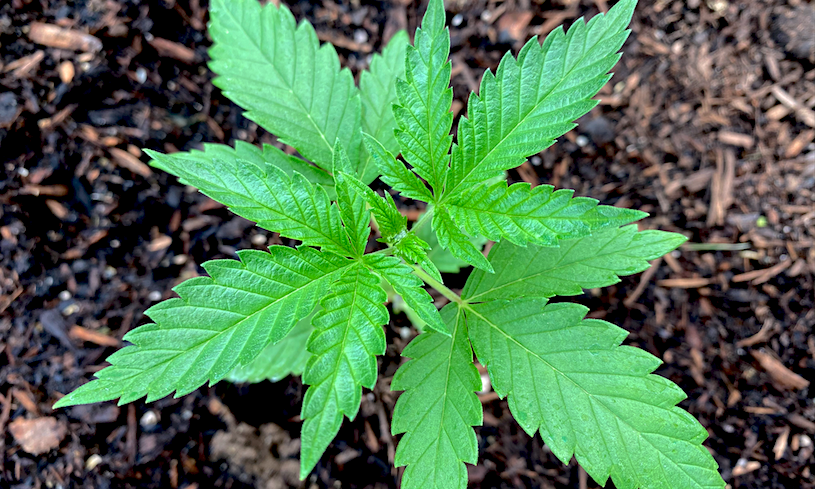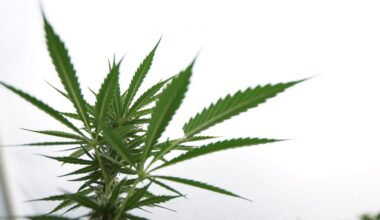California officials are distributing another round of community reinvestment grants totaling $35.5 million with tax revenue generated from recreational marijuana sales.
The Governor’s Office of Business and Economic Development (GO-Biz) announced on Wednesday that they’ve awarded 78 grants to organizations throughout the state that will support economic and social development in communities disproportionately impacted by the war on drugs.
“Harsh federal and state drug policies enacted during that period led to the mass incarceration of people of color, decreased access to social services, loss of educational attainment due to diminished federal financial aid eligibility, prohibitions on the use of public housing and other public assistance, and the separation of families,” a press release from the office says.
The cannabis-derived funds will be used to support efforts such as job placement, mental health and substance use disorder treatment, legal services and linkages to medical care.
This marks the fourth year that cannabis-supported funding has been disbursed through the California Community Reinvestments Grants (CalCRG) program.
We’re proud to announce 78 grants totaling $35.5M in awards through the California Community Reinvestment Grants (CalCRG) program.
These grants will help serve communities across CA that have been disproportionately impacted by the War on Drugs.
More 👉 https://t.co/4p34ly6hOM
— GO-Biz (@CAGoBiz) June 1, 2022
Dee Dee Myers, director of GO-Biz and senior advisor to Gov. Gavin Newsom (D), said that the program “continues to be an important tool for communities that still face systemic restrictions and barriers to opportunity and equity.”
“This latest round of awards will support the economic justice and well-being of communities across our state that have been disproportionately impacted by the War on Drugs,” Myers said.
The grants to local health departments and non-profit organizations will support initiatives such as job placement, legal services for community reentry and mental health and substance misuse treatment.
Among the grant recipients this year are community-based services like YMCA of San Diego County, United CORE Alliance, Bay Area Legal Aid, San Jose State University Research Foundation and Urban Association of Forestry and Fire Professionals.
The largest awards in this round are going to JobTrain, GRID Alternatives Greater Los Angele, Los Angeles Regional Reentry Partnership, Flintridge Center and Recovery Cafe San Jose, each of which will receive $900,000.
[email protected] Coalition, whose missions range from breaking cycles of poverty to supporting workforce development to transgender, gender nonconforming and intersex immigrant women, will get $450,000.
The amount of funding and number of recipients increased from last year’s levels, when the state awarded about $29 million in grants to 58 nonprofit organizations through the CalCRG program.
The program was first announced in April 2020, and applications for those grants were initially opened in September 2020.
California has taken in nearly $4 billion in marijuana tax revenue since the state’s adult-use market launched in 2018, the Department of Tax and Fee Administration (CDTFA) reported late last month. And for the first quarter of 2022, the state saw about $294 million in cannabis revenue generated from the excise, cultivation and sales tax on marijuana.
Marijuana tax policy in the Golden State has been a focal point of attention for stakeholders, regulators and even the governor in recent months.
For example, Newsom unveiled an updated budget proposal last month that calls for the elimination of the state’s marijuana cultivation tax and revised cannabis tax revenue allocations.
The May revised budget would take steps intended to combat the illicit market and make the legal industry more competitive, in large part by zeroing out the cultivation tax that marijuana businesses currently incur.
As the state Legislative Analyst’s Office (LAO) pointed out in its own recent update, Newsom’s proposal also calls for the establishment of monetary thresholds for cannabis tax-funded programs and setting aside any excess revenue.
California collected about $817 million in adult-use marijuana tax revenue during the last fiscal year. That represented 55 percent more cannabis earnings for state coffers than was generated in the 2020-2021 period.
Meanwhile, state officials launched a new resource last month, providing people with an interactive map showing where marijuana businesses are permitted—and where they are blocked from opening—throughout the state.
The tool draws attention to the fact that more than half of the state’s cities and counties do not allow any type of cannabis licensees to operate in their area, which advocates say is a problem that has allowed the illicit market to thrive despite voter-approved legalization.
The map from the Department of Cannabis Control (DCC) doesn’t identify where to find dispensaries that are open, per se (though the agency does have a separate online resource where consumers can find individual licenses businesses). But it does break down how many cities in a given county allow retailers, distributors, manufacturers, cultivators and testing facilities.
Newsom’s revised budget also calls for the creation of a one-time “cannabis local jurisdiction retail access grant program” to support the development and implementation of local retail licensing efforts. The $20.5 million for that program would come out of the state general fund. Localities that license equity applicants could receive additional funding.
The governor said last month that the goal of the initiative is “addressing the persistent issue that is exactly what we anticipated would be a persistent issue—and that’s dealing with the black market, going after the illegal growers and the illegal operators.”
California officials also announced in January that the state had awarded $100 million in funding to help develop local marijuana markets, in part by getting cannabis businesses fully licensed.
DCC distributed the funds to 17 cities and counties where there are a disproportionate number of provisional marijuana licenses, rather than full-year licenses. The department first announced that applications for the Local Jurisdiction Assistance Grant Program had opened in October.
New York Senate Approves Bill To Mandate Medical Marijuana Health Insurance Coverage
Medical Disclaimer:
The information provided in these blog posts is intended for general informational and educational purposes only. It is not a substitute for professional medical advice, diagnosis, or treatment. Always seek the advice of your physician or other qualified healthcare provider with any questions you may have regarding a medical condition. The use of any information provided in these blog posts is solely at your own risk. The authors and the website do not recommend or endorse any specific products, treatments, or procedures mentioned. Reliance on any information in these blog posts is solely at your own discretion.







